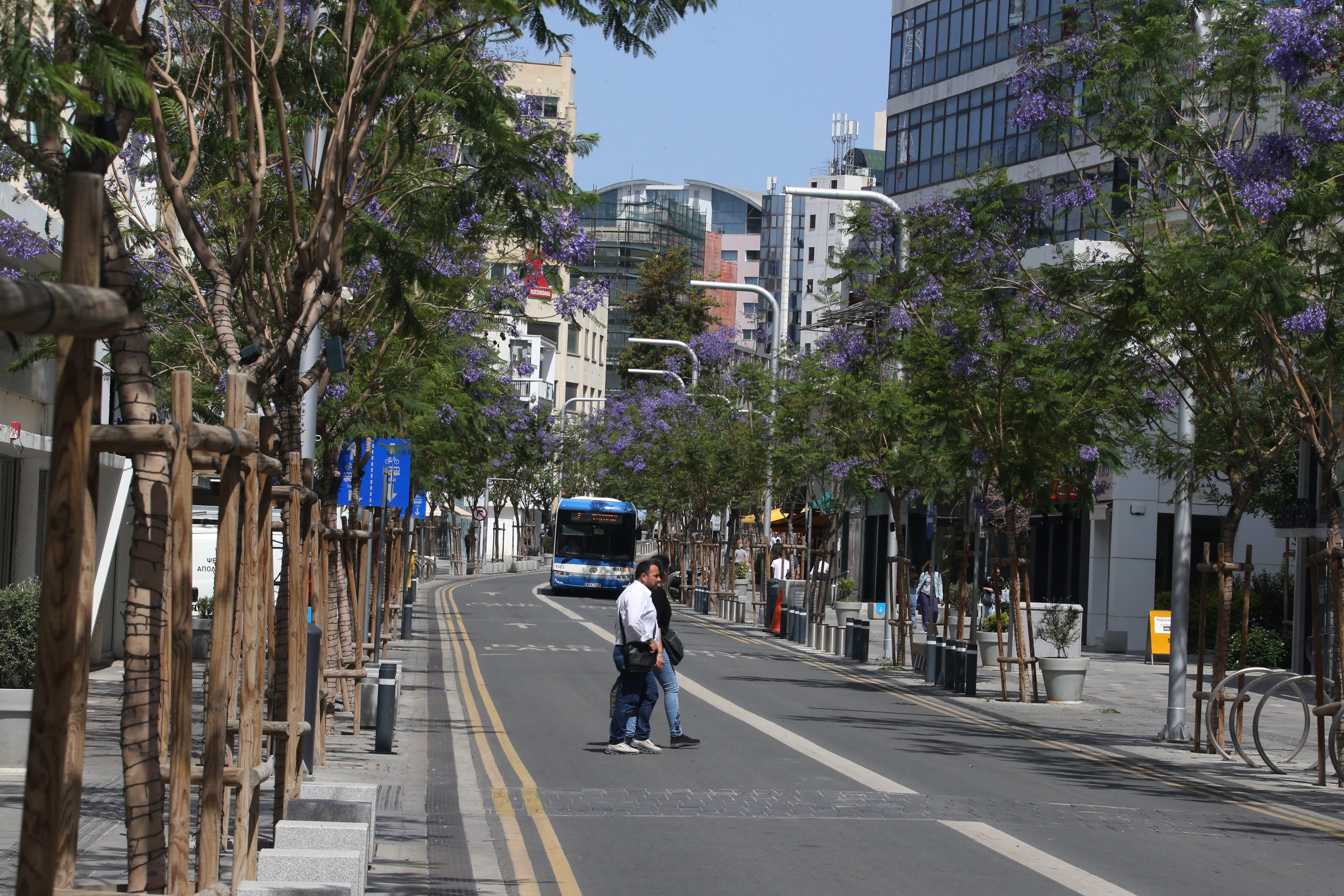The Scientific and Technical Chamber (Etek) on Monday called on Nicosia municipality to rethink its recent decision to partially reopen Makarios avenue to regular traffic.
In a statement, Etek urged the municipality to first rescind its decision, and then engage in “dialogue” in a bid to reassess the matter.
The issue requires “scientific validation, public deliberation and strategic consistency”, Etek said.
“Taking decisions behind closed doors, and without the requisite scientific validation, risks leading to fragmentary actions that undermine the character of the public space, hindering the formulation of a stable and reliable framework for the sustainable development of the city.”
Effectively the body was telling Nicosia municipality that it had made the wrong decision.
It went on to remind the municipality that the improvement works along Makarios avenue were co-financed by the European Union “in order to promote the principles of sustainable urban mobility planning”.
Etek said it will organise a workshop on the broader issue of Nicosia’s urban centre, with an emphasis on Makarios avenue.
Earlier this month municipal councilors had voted for the central Nicosia street to reopen for traffic.
Makarios avenue is to reopen to all private vehicles on weekdays between 7am and 9pm.
Meanwhile between 9pm and 7am on weekdays and on weekends, the avenue will be used only by authorised vehicles – buses, taxis, residents and employees of the area, as it had been until now.
The new traffic arrangements will apply from the Lycavitos police station up to and including Solomou square.
The municipality was waiting on the police chief to green-light the new traffic arrangements.
Critics – including the Green party – immediately censured the municipality over its decision.
The European Commission had co-funded the restoration of Makarios avenue on condition that it restricted traffic.
It remains unclear what steps Brussels might take against the municipality. Speculated measures include asking for the return of its share of funding – said to be €21 million – or even branding the municipality as an unreliable partner, making Nicosia ineligible for future EU funds.






Click here to change your cookie preferences